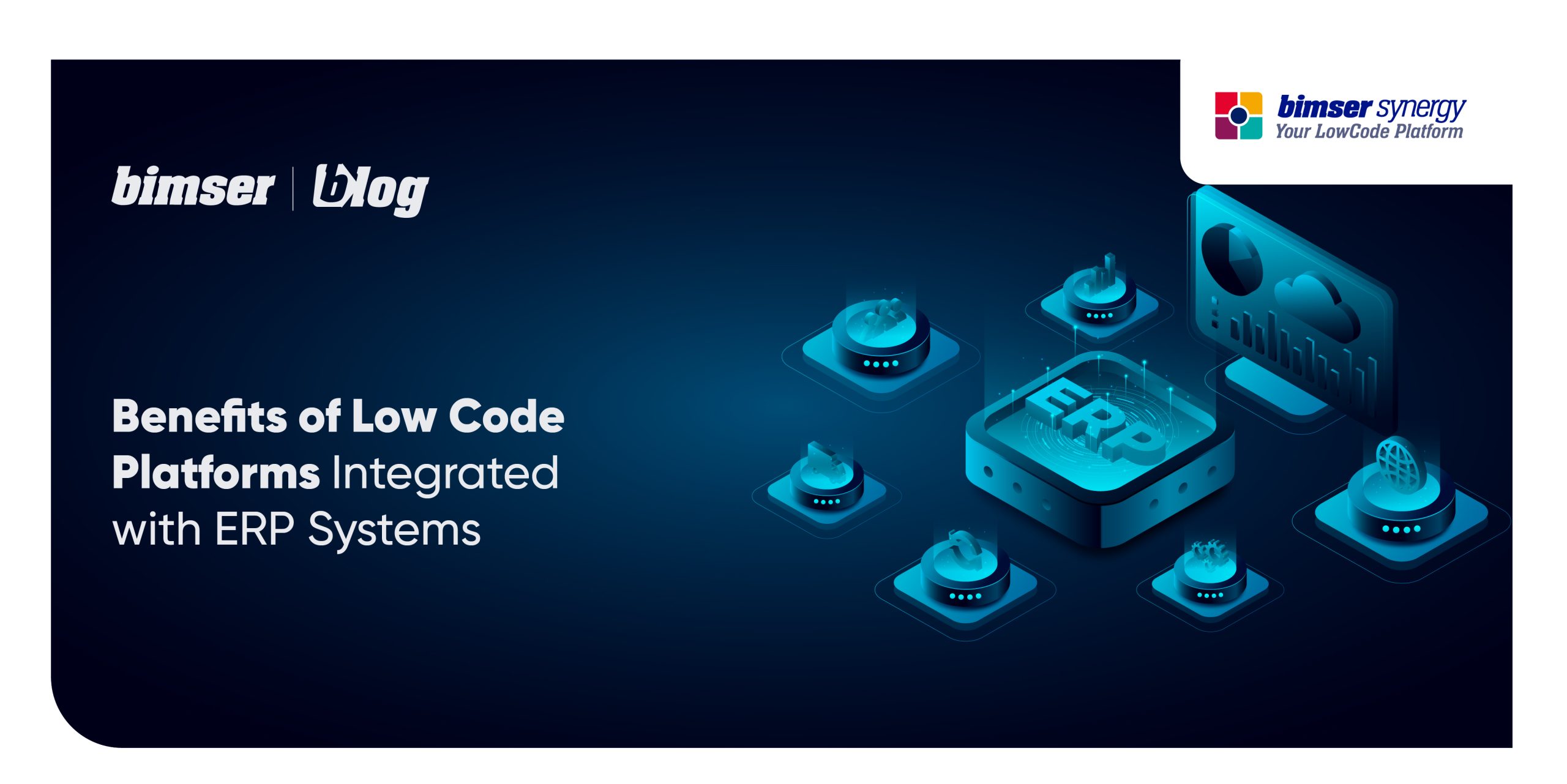Benefits of Low Code Platforms Integrated with ERP Systems
Low-code platforms are innovative solutions that make it easier for businesses to keep up with digital transformation. The integration of ERP systems into these platforms adds flexibility and efficiency to business processes. This combination that supports innovation opens a new chapter in the business world. So, what benefits do low-code platforms and ERP integration bring to business processes?
Introduction to Low Code Platforms and ERP Systems
Low-code software design is a method that uses pre-built templates and drag-and-drop components to build applications. Low-code platforms provide users with these templates and custom code components to enable visual modeling. Thus, new processes and applications can be easily designed with minimal need for technical knowledge. This system, which enables customized application design, can integrate seamlessly with other systems.
Enterprise resource planning (ERP) is integrated software that businesses use to manage processes such as accounting, purchasing, project management, risk management, and regulatory compliance. It also facilitates daily business activities, such as supply chain operations or inventory management. With this system, information flows between departments through a common database, aiming to make business processes more efficient.
ERP systems bring together different business processes and facilitate data flow between them through the cloud system. By collecting the common transactional data of the organization, they prevent data duplication and provide data integrity. At the same time, these integrated systems, which add transparency to business processes, enable end-to-end workflow and simultaneous data sharing in an organization.
Key Benefits of Integrating Low Code Platforms with ERP Systems
Low-code platforms and ERP systems can easily integrate. This combination brings efficiency to business processes and contributes to digital transformation by enabling the development of customized applications.
Improved Efficiency Through Streamlined Operations
Integrating ERP systems and low-code platforms is highly effective in business process automation. Repetitive tasks of business processes are automated through this integration. In addition, manual tasks are carried out in this automated order, reducing the error rate and enabling employees to take part in other tasks. Low-code ERP systems, which transform complex business processes into simpler forms, offer an increase in productivity.
Low-code platforms integrated with ERP systems facilitate inter-departmental communication and data sharing, providing speed and practicality in operations. With simultaneous data panels and reporting tools, business processes, and performance evaluation can become easier.
Cost Reduction and Time Savings
Low-code platforms minimize the need for technical knowledge, speeding up the application development process and saving time. With its structure that lessens dependency on technical departments, it significantly reduces the maintenance costs of the systems. The functions that the ERP system must fulfill can be quickly customized with low-code platforms. In this way, applications suitable for business needs can be designed in a shorter time.
Time and cost savings are achieved by preventing possible disruptions in workflow processes. In addition, the high efficiency and flexibility offered by low-code ERP systems can provide financial advantages for businesses in the long term. When businesses can update ERP systems according to changing conditions, seamless execution of workflows without interruptions becomes possible.
Boosting Collaboration and User Adoption
Customizable ERP solutions offer user-friendly interfaces. This facilitates easy adoption of ERP tools and ensures that the whole team is involved in the business processes. Thus, even non-technical employees can participate in application development processes. This has a positive impact on collaboration by strengthening communication between departments. Low-code ERP systems enhance efficiency in the business development processes of teams by allowing customization of workflows.
Ensuring Seamless Data Integration
Integrated ERP systems and low-code platforms simplify data flow and control in the operational processes of businesses. API mechanisms and connectors that enable two software components to communicate with each other have an important role in the integration of ERP systems. Seamless data flow between systems increases ERP system efficiency. Thus, a centralized management system is created, and simultaneous data synchronization brings efficiency to decision-making processes.
Agility and Scalability for Growing Businesses
Growing business may require rapid adaptation to changing conditions and demands. Integration solutions that facilitate rapid adaptation provide flexibility to businesses. These digital solutions help create agile workflows and integrate new departments into the system, making it practical to expand operations. In this way, growing businesses can increase their efficiency by quickly adapting to changing circumstances.
If you want to take a giant step forward in your digital transformation journey, Bimser is here for you with its special low-code platform. Our low-code platform, Synergy, is a content services platform that enables you to access applications from anywhere with a cloud system that includes file management and back-office processes. Fully compliant with regulations, the platform is designed with special integration options for systems such as ERP.
Bimser Synergy Low-Code Platform helps you to have a fast, easy, and low-cost digital transformation. Request a demo to digitize your business processes quickly by minimizing the need for technical information with our user-friendly interface and flexible structure.








Parth Savjadiya
Nice blog! Simple yet impactful.